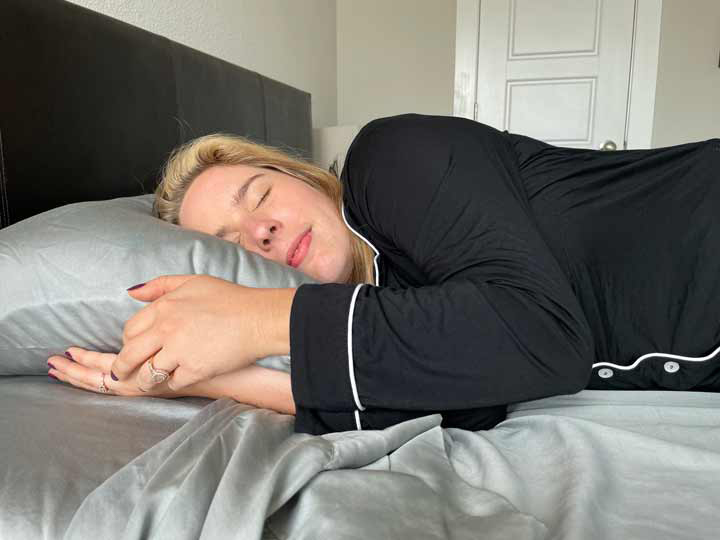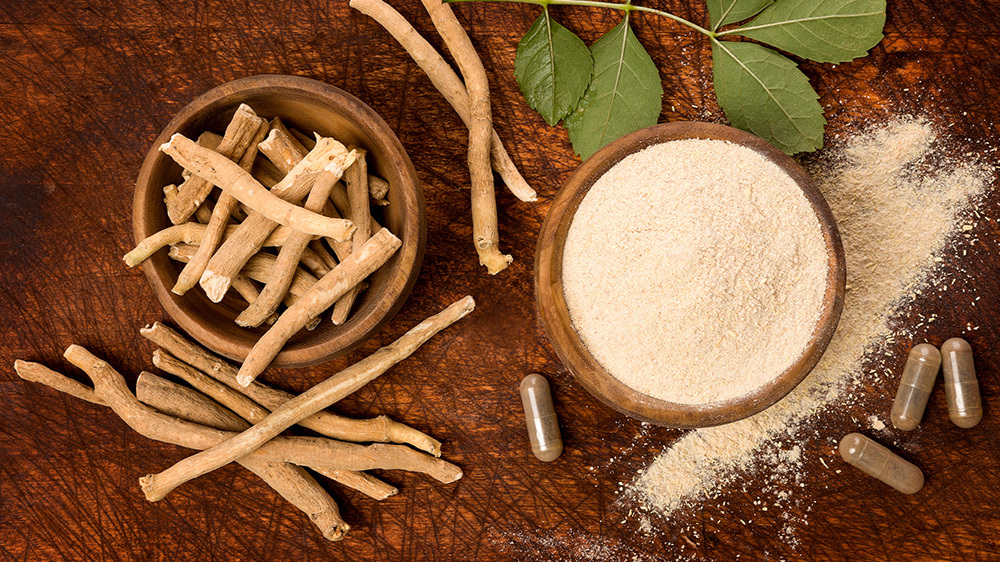Are you one of the millions of people who struggle to get a good night’s rest? If so, you’ve likely tried everything from meditation to sleeping pills to help you catch some Zzzs. But have you considered trying Ashwagandha?
This ancient herb has been used for centuries in Ayurvedic medicine to treat a wide range of ailments, including insomnia. While the scientific evidence on Ashwagandha’s effects on sleep is still emerging, many people swear by its calming properties. So, is Ashwagandha the answer to your sleep woes? Let’s dive into the research and find out!
What Is Ashwagandha?
Ashwagandha, also known as Winter Cherry, is a nightshade that grows year-round in India, the Middle East, and parts of Africa. The plant is one of the most important herbs in Ayurveda and is taken by both young and old in an attempt to reduce stress and improve longevity.

Types of Ashwagandha
Ashwagandha can be consumed in a variety of different forms, but it’s most commonly put into tinctures and powders. These tinctures and powders are then used to make liquids, capsules, pills, and even gummies to make the substance easier to consume.
Ashwagandha Benefits
There are a number of proven benefits to using Ashwagandha that have been observed over the thousands of years humans have been consuming it.
Ashwagandha reduces the stress response by normalizing cortisol levels within the body. It is also known to reduce inflammation which can be extremely harmful over time and damage body tissue.
Ashwagandha has proven to have anti-cancer effects, and it can improve memory function by reducing stress and anxiety.
Ashwagandha Side Effects
While not many people have experienced side effects from consuming Ashwagandha, there can be adverse effects if it’s taken in high doses. These include vomiting, diarrhea, nausea, and irritation of the intestinal tract.
Does Ashwagandha Help You Sleep?
Ashwagandha has shown the potential to help improve the quality of sleep for those who suffer from insomnia or anxiety. However, further large-scale studies are needed to prove that Ashwagandha helps people sleep.

When to Take Ashwagandha
If you are taking Ashwagandha to help improve the quality of your sleep, it’s best to take it an hour before bedtime. This way, its beneficial stress-relieving effects should last through the night. If you struggle with insomnia or anxiety that prevents sleep, then taking Ashwagandha twice a day should have a positive impact.
What Is a Safe Dosage for Sleep?
The National Library of Medicine recommends a 300 mg dosage of Ashwagandha twice a day for those suffering from insomnia or anxiety.
How to Take Ashwagandha for Sleep
There are many ways you can take Ashwagandha as a sleep aid. Many people pour the powder into a warm beverage and drink it before bed. You can also take Ashwagandha in a capsule form, as that’s quickly absorbed into the body.

How Does Ashwagandha Compare to Other Sleep Supplements?
When it comes to improving sleep, there are countless supplements on the market to choose from. One of the most popular is Ashwagandha, but how does it stack up against other sleep supplements? Let’s take a closer look.
Ashwagandha vs Magnesium
Magnesium is an effective sleep aid, as it activates the body’s parasympathetic nervous system which makes you feel calm, relaxed, and ready for sleep. Ashwagandha, on the other hand, contains a compound called triethylene glycol which promotes feelings of sleepiness.
RELATED: Does Magnesium Help You Sleep?
Ashwagandha vs Melatonin
Melatonin is naturally produced by the brain in response to darkness. But in the modern world, we are often exposed to bright light much later into the night, delaying the production of melatonin in the brain.
Taking a melatonin supplement can help people who struggle with insomnia, particularly if they’re often exposed to blue light before bedtime.

Ashwagandha vs Kava
Kava, also known as Kava Kava, contains a compound called kavalactones which helps relieve stress. However, studies have been inconclusive as to whether it can be used to treat anxiety and aid sleep. There have also been cases of severe side effects, so studies have been halted.
There are small amounts of Kava found in anti-energy drinks, but it’s best to ensure any ingestion of Kava is done so in small doses.
Ashwagandha vs L-Theanine
L-Theanine is an amino acid that’s often found in tea leaves. It helps promote sleep by reducing anxiety via the induction of brain waves.
How to Fall Asleep Naturally
Want to fall and stay asleep naturally? Here are a few handy tips:
- Take sleep-inducing supplements
- Create a calming sleep environment
- Get enough exercise during the day
- Buy a comfortable mattress
- Ensure you are sleeping in a cool room
- Try utilizing a sleep app
- Make sure your room is dark enough
RELATED: What to Do If You Can’t Sleep
FAQs
How long does Ashwagandha take to work?
Current research suggests that it takes anywhere from a couple of days to a few weeks to start noticing the calming effects of Ashwagandha.
What is Ashwagandha used for?
It helps in the reduction of stress and anxiety, promotes sleep, reduces inflammation, and may have a positive effect on memory.
How long does Ashwagandha stay in your system?
The water-soluble compounds found in Ashwagandha are dispelled from your system in just two to three days. However, the fat-soluble compounds can take up to a month to leave your system.
Is Ashwagandha good for anxiety?
Studies suggest that Ashwagandha can calm feelings of stress and anxiety.
Is Ashwagandha safe during pregnancy?
Ashwagandha should not be taken during pregnancy or while trying to conceive.
Can you take Ashwagandha while breastfeeding?
Ashwagandha is not considered safe to be taken while breastfeeding.

